King tides return to coastal Orange County, but surf stays moderate
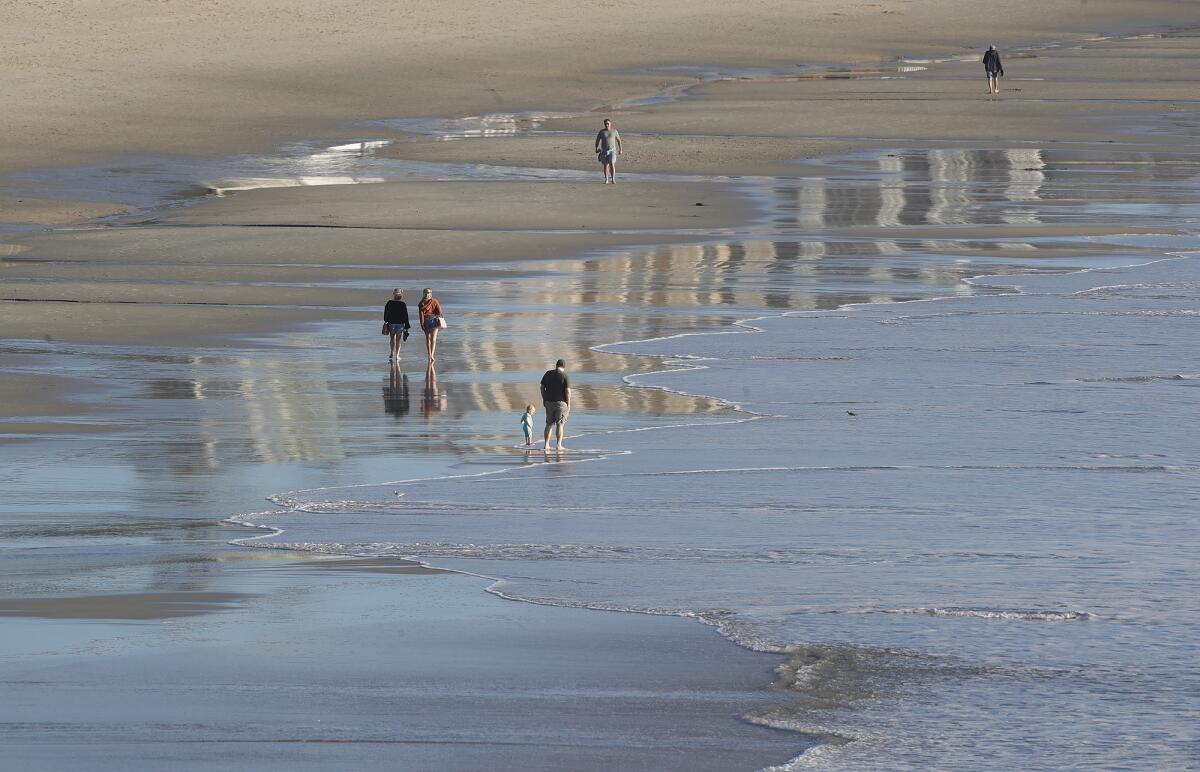
A second wave of king tides rolled up against coastal Orange County last weekend, though this time without high surf, according to meteorologists.
The National Weather Service issued a coastal hazard advisory through the weekend, advising residents in low-lying coastal Orange and Los Angeles counties that the tides could potentially bring some tidal overflow, though no significant flooding was reported, save in Huntington Beach, where a problematic section of Pacific Coast Highway shut down Tuesday for the fifth time this month.
The San Diego National Weather Service station reported that high tides in Newport Beach peaked at around 6.84 feet early in the morning on Saturday and fell to a low of around -1.93 feet in the afternoon.
That compares to the daily average for high tides, which tends to be around 4 to 5 feet, and low tides, which are 0 to 1.5 feet, in Orange County.
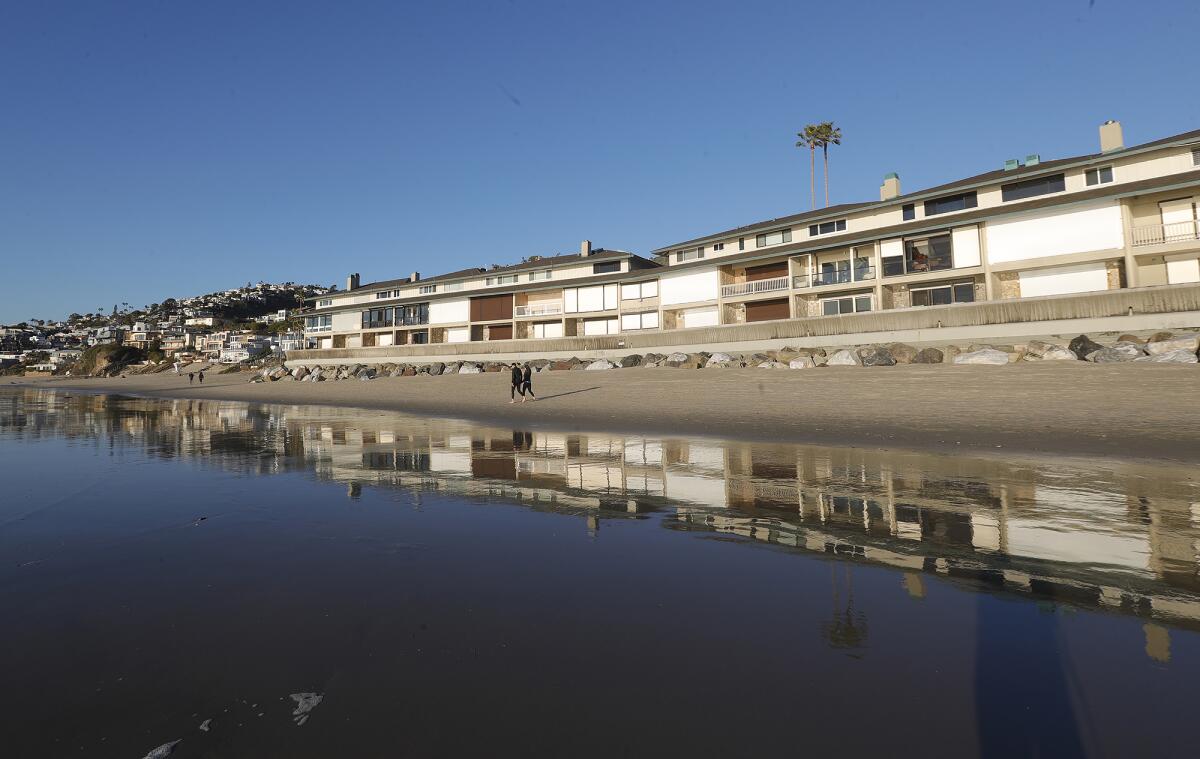
King tides, which are exceptionally high, occur naturally and typically happen when the sun, moon and Earth are in gravitational alignment. The state Coastal Commission is working on documenting them through the California King Tides project, which seeks to allow researchers to see what higher sea levels — caused by human activity — will look like in the future.
Meteorologist Brandt Maxwell noted that the Earth is closer to the sun around this time of year and that the sun influences the tides.
“Basically, what it meant for beachgoers is that during the morning, the beach would be pretty much all gone because of the high tide ... and then in the afternoon, you have a beach that extends almost halfway to Hawaii,” Maxwell joked. “It’s kind of amazing walking on the beach during very low tide.”
The difference between January’s king tides and December’s were negligible.
Maxwell noted that tides are expected to be lower in the coming months as the sun and Earth grow more distant, but current projections indicate that Feb. 19 will see a high tide of around 6.54 feet and a low tide of around -1.72 feet.
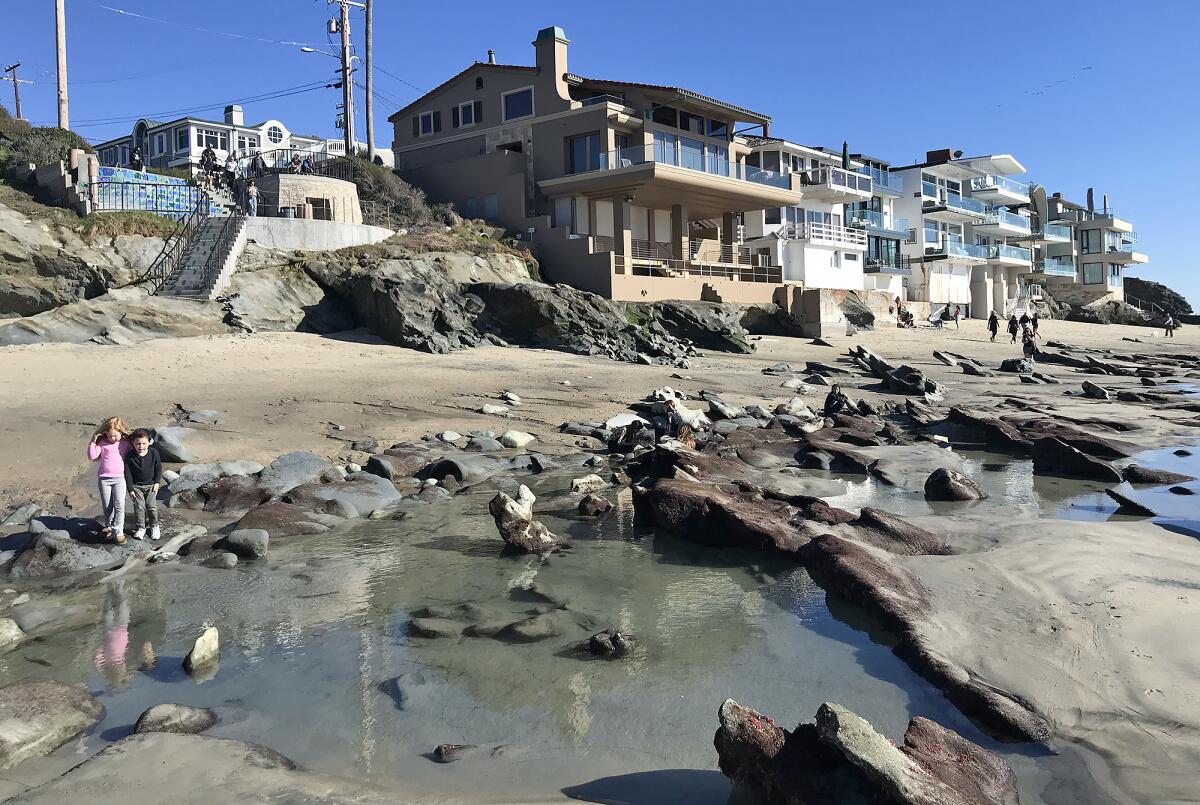
“We were fortunate that very high surf came before the king tides,” Maxwell said.
“The king tides, even without the surf, would cover most of the beach, but if you have surf on top of that then you can have some real damage because your ocean water’s already higher,” he continued. “If you have high surf on top of that, then it can get into structures like houses, buildings that are very close to the coast ... we were very fortunate that this past weekend the surf was 2 to 4 feet.
“It wasn’t very much versus what happened the weekend before when we were getting surf up to 12 feet. Then, we would have been getting a lot of damage.”
And though king tides mean low tides are lower, OC Coastkeeper’s marine restoration director Claire Arre said the conditions aren’t deadly for marine life.
“The animals that live in the intertidal zone are resilient and have to survive two low tides a day. With these extreme low tides the animals are exposed for a bit longer, as well as some slightly deeper critters being exposed only a couple times of year. But again, they live there because they were made to survive it,” Arre said.
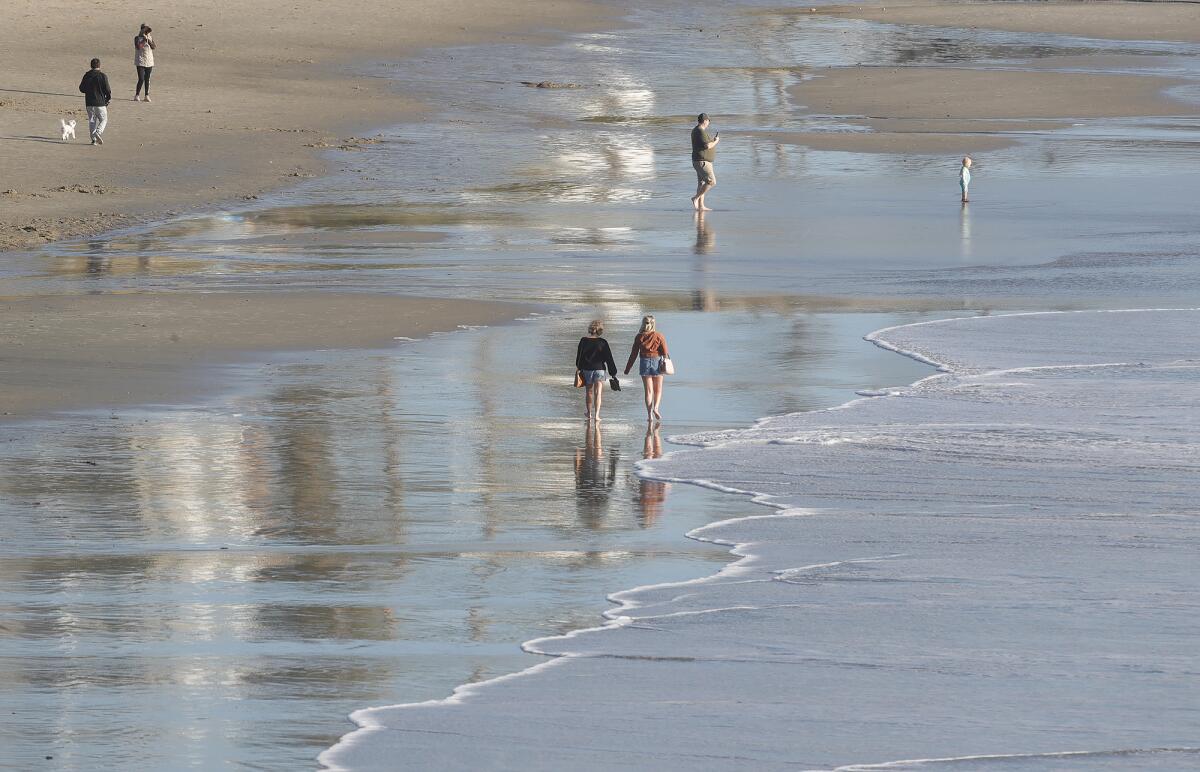
“But, these negative low tides do allow for exploration deeper into some intertidal zones than most people are used to, so we always want to encourage them to be extra careful for their own safety as well as those of the animals [and] seaweed they are seeing,” she said, adding that the significantly low tides allow people to see a part of the seashore they can’t normally.
Arre said if beachgoers see dead fish or sea life, it’s more likely related to recent storms, as huge freshwater inflows and urban runoff wash pollution into the habitats near shore and cause harm to aquatic life.
“Fish survive the tides, [but] they don’t survive a quick drop in salinity that coincides with an increase in pollutants,” Arre said.
Wet weather is expected to return to California later this month, though it is currently unclear how much or how little rain will fall, according to the National Weather Service.
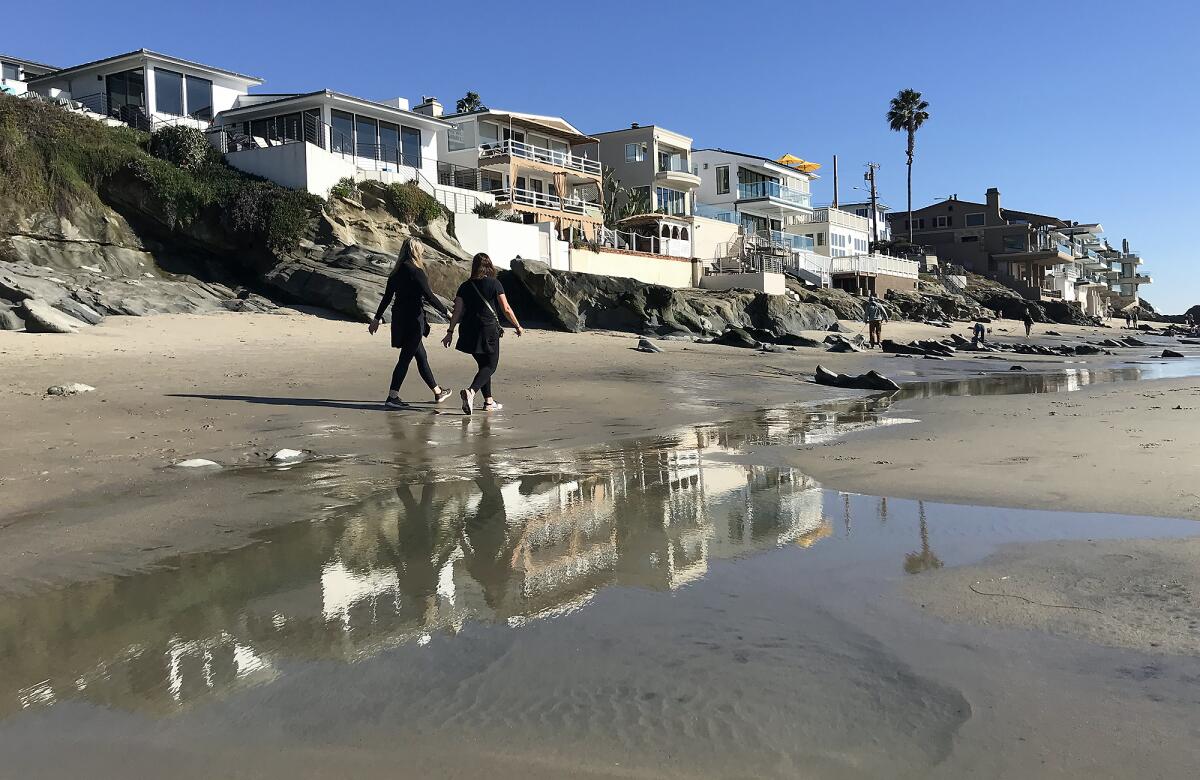
All the latest on Orange County from Orange County.
Get our free TimesOC newsletter.
You may occasionally receive promotional content from the Daily Pilot.




